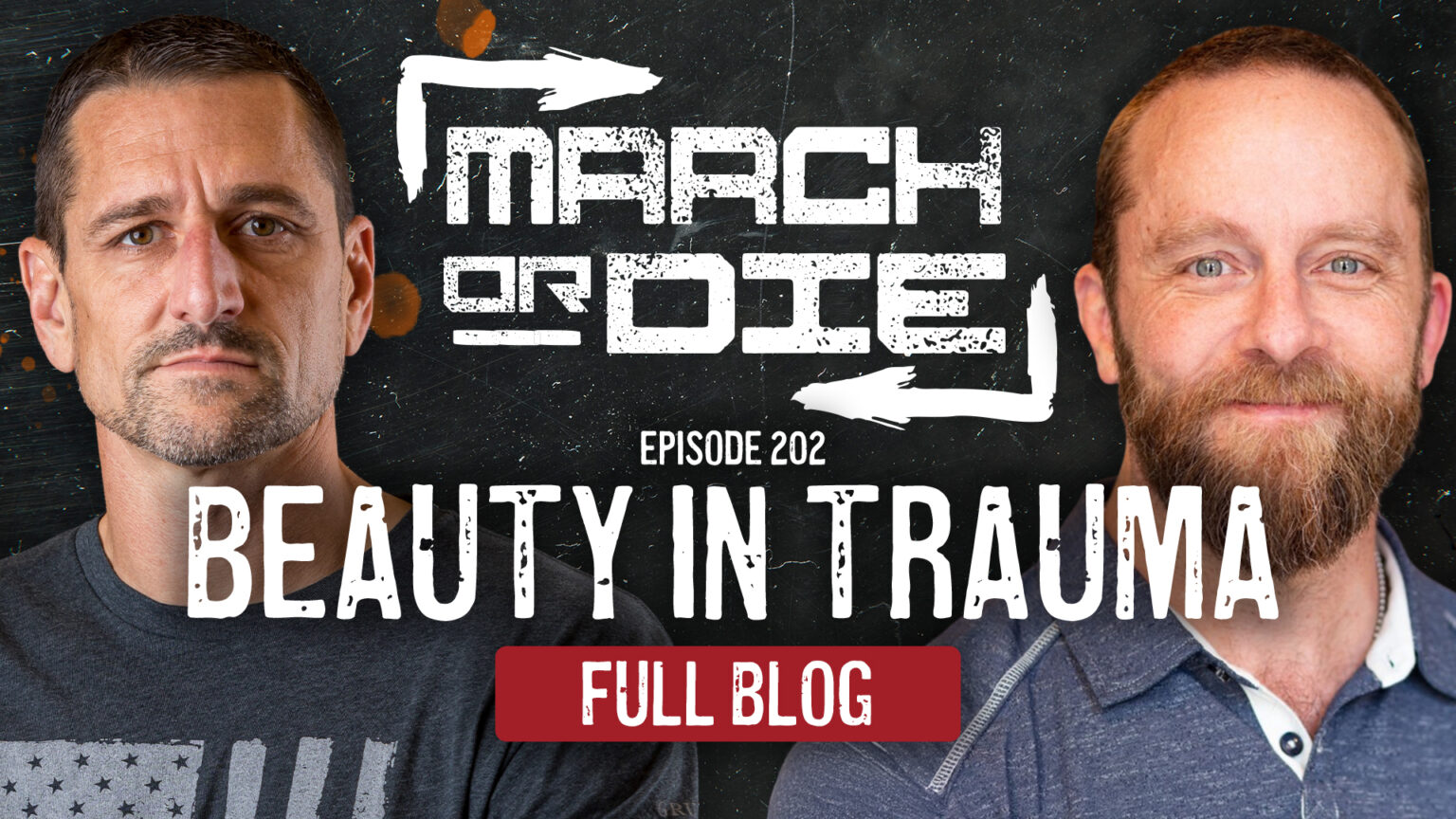In the latest episode of March or Die, host Jeremy Stalnecker sits down with veteran and deep thinker Greg Drobny to explore a topic that resonates deeply with anyone who has faced trauma or challenges: the search for meaning and beauty in life’s hardest moments.
Greg, a former U.S. Army soldier, has spent years working with veterans and grappling with some of the most profound questions of human experience. His unique perspective combines personal military experience, philosophical insight, and a deep appreciation for the power of narratives. In this episode, the two discuss how to find beauty and meaning even in the face of trauma and difficulty.
Table of Contents
The Ethics of Beauty: A Philosophical Framework
Central to their conversation is the book The Ethics of Beauty by Timothy Patitsas. The book’s core premise is that beauty is the antidote to nihilism, offering a path to hope and meaning when life feels overwhelming or purposeless. Greg explains how beauty, often misunderstood in modern society, is not merely about aesthetics but about recognizing that we are part of a much larger story.
“Beauty itself is the antithesis of nihilism,” Greg quotes. “If you want an antidote to nihilism—this idea that nothing matters—it’s beauty. Beauty is where we start, not a series of facts.”
Through this lens, trauma and hardship are not isolated experiences but chapters in a grander narrative. This perspective allows us to reframe pain as something that can hold beauty when viewed as part of a larger story.
Trauma and the Bigger Picture
Greg and Jeremy discuss how trauma, whether experienced on the battlefield or in everyday life, often isolates individuals. Yet, the key to healing is recognizing that pain does not define us but can be integrated into a meaningful journey.
“Whether you’ve been in the military or not, hurt and trauma are common to all of us,” Greg shares. “But if we see ourselves as part of a much larger story, we can understand that the story itself is beautiful.”
This approach resonates deeply with veterans, many of whom struggle to transition from the structured, purpose-driven world of military service to the often fragmented civilian experience. By reconnecting with a larger narrative, they can rediscover purpose and hope.
The Role of Community
A recurring theme in the conversation is the essential role of community in healing and finding meaning. Greg notes that isolation, a common issue in modern society, is a major barrier to overcoming trauma. In contrast, being part of a community that shares a common direction can be transformative.
“We go to hell alone, but we go to heaven together,” Greg quotes, emphasizing the need for relationships and shared purpose. “True beauty and meaning come from being part of something bigger than yourself.”
The military’s structured community provides a powerful example of this. However, Greg and Jeremy highlight the challenge veterans face in transitioning to civilian life, where such strong communal bonds are often lacking. The solution lies in creating new communities that offer support, direction, and a shared narrative.
Lessons for All of Us
While the episode focuses on veterans, its lessons are universal. Trauma, isolation, and the search for meaning are struggles everyone faces. Greg and Jeremy encourage listeners to look beyond individual hardships and see themselves as part of a grander, more beautiful story. By embracing community, purpose, and the concept of beauty as a starting point, anyone can begin to move forward.
“Beauty reminds us that we’re part of something much greater,” Greg says. “When we lose sight of that, we lose hope. But when we find it again, everything changes.”
A Call to Action
As the episode concludes, Jeremy challenges listeners to share this message with others who may be struggling. The conversation with Greg Drobny is not just about finding beauty in hardship but about spreading that hope to others.
Visit marchordie.com to explore more episodes, and don’t forget to subscribe, share, and join the community working together to march forward when it would be easier to stay and die.






